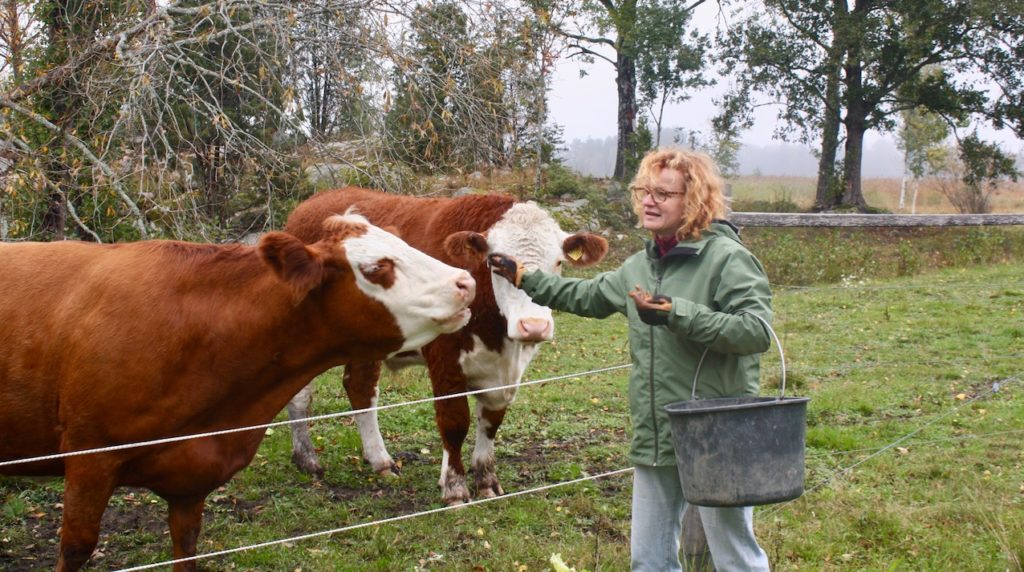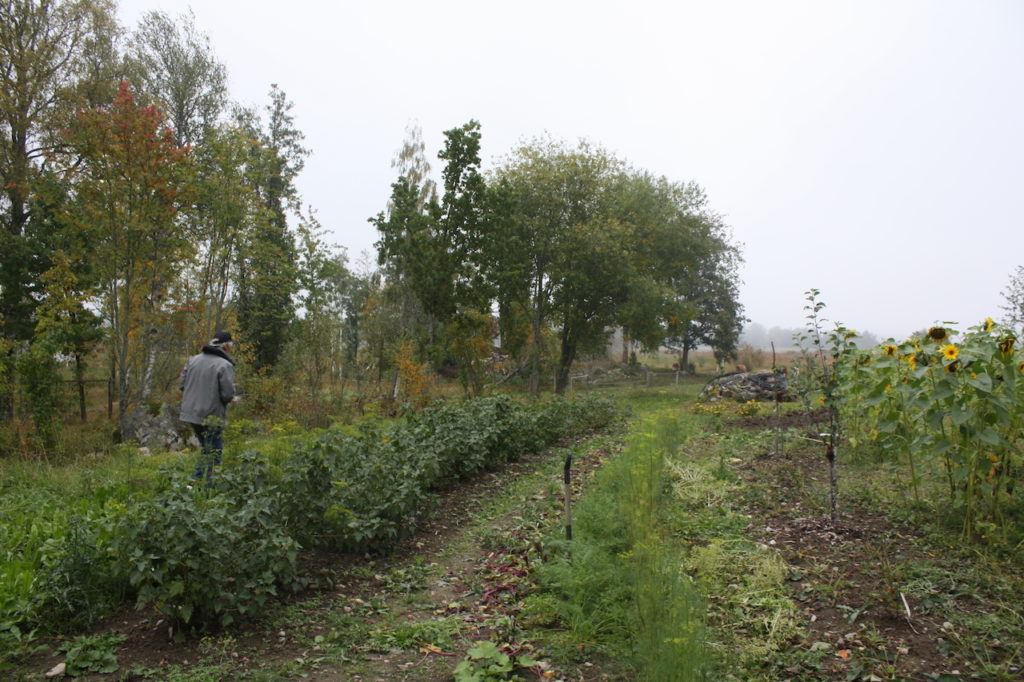A few miles west of the Swedish town of Uppsala, at the end of a long gravel road across a pine tree grove, lies a small-scale organic farm Sunnansjö Gård, ran by Ann-Helen Meyer von Bremen and Gunnar Rundgren. The couple shares a strong will to reconnect with the roots of food production, meat consumption and to bring the discussion about their passion further.
Gunnar has been involved in farming ever since he finished school, both as an organic farmer and consultant, mostly internationally. He has been advocating for sustainable farming and food consumption for several decades. Ann-Helen grew up on a small leased farm on the countryside, but spent most of her life in Stockholm, writing about environmental issues and the influence of food production and consumption choices on our planet’s ecosystems. Their latest book called “The Planet of the Cows” was released in summer 2020 and focuses on the role cows play and have played in sustainable farming, including the controversy of meat consumption.
When they first arrived at the farm, the close-by lake couldn’t even be seen due to the dense vegetation. Six years later, the landscape is now open, thanks to the beef cattle that the couple keep, and the view from the house painted with the traditional Falu red is stunning.
While cows are celebrated for their positive contribution to open landscapes and idyllic sceneries, they are also known for emitting climate-destabilizing greenhouse gases (GHG). SIANI visited the farm on a foggy day and spoke with the Sunnansjö Gård’s owners about their life in the countryside and the reasons why cows have become commonly depicted as climate and sustainability culprits.

